Cortisol, often called the “stress hormone,” is surrounded by misconceptions, especially regarding its relationship with supplements. As someone who has spent years researching hormones and their effects on our bodies, I’m here to set the record straight and provide a comprehensive look at cortisol and supplements.
The Nature of Cortisol: A Crucial Hormone
Cortisol plays a vital role in our body’s stress response. It helps us wake up in the morning, regulates blood sugar levels, and supports our immune system.
The problem arises when cortisol levels are chronically elevated or imbalanced, leading to various health issues.
The Cortisol Rhythm
Cortisol follows a natural daily rhythm, known as the circadian rhythm. Levels typically peak in the early morning, helping us wake up and feel alert.
Throughout the day, cortisol gradually decreases, reaching its lowest point in the evening to allow for restful sleep.
This rhythm can be disrupted by factors such as chronic stress, poor sleep habits, and certain medical conditions. Understanding this natural pattern is crucial for addressing cortisol-related issues effectively.
Myth 1: All Stress is Bad for Cortisol Levels
Many people believe that all forms of stress lead to harmful cortisol spikes. In reality, our bodies are designed to handle short-term stress, and these brief cortisol increases can be useful.
Acute vs. Chronic Stress
Acute stress, like the kind you might experience before a big presentation or during a workout, can actually improve performance and cognitive function. This type of stress triggers a short-term cortisol release that helps sharpen focus and boost energy.
Chronic stress, lasting for weeks or months, is where the negative health impacts often associated with cortisol come into play. Prolonged elevation of cortisol can lead to weight gain, sleep disturbances, mood changes, and other health issues.
The Benefits of Short-Term Stress
Short-term stress can have several positive effects:
- Enhanced immune function
- Improved memory and learning
- Increased motivation and productivity
- Better physical performance
These benefits highlight why it’s essential to differentiate between helpful and harmful stress when considering cortisol levels.
Myth 2: Cortisol-Lowering Supplements Are Always Beneficial
The market for cortisol-lowering supplements is booming, but these products aren’t always necessary or useful. Our bodies naturally regulate cortisol levels throughout the day, following the circadian rhythm mentioned earlier.
The Risks of Artificially Lowering Cortisol
Artificially lowering cortisol with supplements can disrupt the natural cycle and potentially lead to other hormonal imbalances. If you’re dealing with chronic stress, simply lowering cortisol levels doesn’t address the root cause of the problem.
Effective Stress Management Techniques
Instead of relying solely on supplements, it’s often more effective to address the sources of stress in your life and apply stress management techniques:
- Regular exercise
- Mindfulness and meditation
- Adequate sleep
- Balanced nutrition
- Time management strategies
- Social support
These approaches tackle stress at its source, promoting overall well-being as opposed to just manipulating cortisol levels.
Myth 3: Adrenal Fatigue is Caused by High Cortisol
The term “adrenal fatigue” has gained popularity in recent years, often blamed on chronically high cortisol levels. However, this condition isn’t recognized by most endocrinologists, and the symptoms associated with it are often because of other factors.
The Adrenal Fatigue Controversy
What’s often labeled as adrenal fatigue can sometimes be a result of low cortisol levels, not high ones. This misconception has led many people to incorrectly self-diagnose and self-treat, potentially missing other important health issues.
Common Causes of Fatigue and Low Energy
Symptoms like fatigue, brain fog, and low energy can be caused by a variety of factors:
- Poor sleep quality or quantity
- Nutrient deficiencies
- Underlying health conditions (e.g., thyroid disorders, anemia)
- Chronic infections
- Medication side effects
- Depression or anxiety
It’s crucial to work with a healthcare professional to identify the true cause of these symptoms as opposed to assuming they’re related to cortisol levels.
Myth 4: Cortisol Always Causes Weight Gain
While it’s true that chronically elevated cortisol can contribute to weight gain, particularly around the midsection, it’s overly simplistic to blame cortisol alone for weight issues.
The Complex Relationship Between Cortisol and Weight
Factors like diet, exercise, sleep quality, and other hormones all play significant roles in weight management. Cortisol’s effects on weight can vary depending on person factors and the overall hormonal environment in the body.
In some cases, low cortisol levels can also contribute to weight gain. The relationship between cortisol and weight is complex and bidirectional – stress can lead to weight gain, but carrying excess weight can also increase cortisol levels.
Cortisol’s Impact on Metabolism
Cortisol influences metabolism in several ways:
- It can increase appetite, particularly for high-calorie foods
- It may promote fat storage, especially in the abdominal area
- It can affect insulin sensitivity and blood sugar regulation
- It influences the breakdown and use of fats, proteins, and carbohydrates
Understanding these mechanisms helps explain why managing stress and cortisol levels can be an important part of a comprehensive weight management strategy.
Myth 5: Adaptogenic Herbs Always Lower Cortisol
Adaptogenic herbs like ashwagandha, rhodiola, and holy basil are often marketed as cortisol-lowering supplements. While these herbs can help the body adapt to stress, their effects on cortisol are more nuanced than simply lowering it.
How Adaptogens Work
Adaptogens work by helping to balance the entire HPA (hypothalamic-pituitary-adrenal) axis, which regulates our stress response. Depending on your person needs, they may help lower or raise cortisol levels.
The key is in promoting balance, not just reduction. For example, ashwagandha has been shown to lower cortisol in people with elevated levels, but it may not have the same effect in those with normal cortisol levels.
The Balancing Act of Adaptogens
Adaptogens work to normalize bodily functions, as opposed to pushing them in one direction or another. This means they can:
- Help lower cortisol when it’s too high
- Support cortisol production when it’s too low
- Improve the body’s overall stress response
- Enhance energy and focus without overstimulation
This balancing effect makes adaptogens a versatile tool for managing stress and supporting overall health, but it’s important to use them appropriately based on person needs.
Myth 6: You Can Accurately Test Cortisol Levels at Home
With the rise of at-home hormone testing kits, many people believe they can easily and accurately measure their cortisol levels. However, cortisol testing is more complex than many realize.
The Challenges of Cortisol Testing
Cortisol follows a diurnal rhythm, meaning its levels fluctuate throughout the day. A single test, especially one taken at home, doesn’t provide a finish picture of your cortisol status.
Factors that can affect cortisol levels during testing include:
- Recent meals
- Exercise
- The stress of taking the test itself
- Time of day
- Sleep quality the night before
- Medications
Professional Cortisol Testing
Accurate cortisol testing needs many samples throughout the day and should be interpreted by a healthcare professional. Common methods for comprehensive cortisol testing include:
- Salivary cortisol testing (multiple samples over 24 hours)
- 24-hour urinary free cortisol test
- Blood cortisol tests (usually taken in the morning and evening)
These methods provide a more finish picture of cortisol patterns and can help identify issues like Cushing’s syndrome or adrenal insufficiency.
Myth 7: High Cortisol Always Causes Sleep Problems
While elevated cortisol levels, especially in the evening, can indeed interfere with sleep, the relationship between cortisol and sleep is more complex than many realize.
The Cortisol-Sleep Connection
Cortisol naturally rises in the early morning hours to help us wake up. This is part of our natural circadian rhythm.
Low cortisol levels, particularly in the morning, can also lead to fatigue and sleep disturbances.
A healthy cortisol rhythm is crucial for good sleep-wake cycles. Ideally, cortisol should be at its highest in the morning, helping you feel alert and energized, and at its lowest in the evening, allowing you to wind down and prepare for sleep.
Factors Affecting Sleep and Cortisol
Disruptions to this rhythm, whether from stress, shift work, or other factors, can lead to sleep issues regardless of whether overall cortisol levels are high or low. Other factors that can affect both sleep and cortisol include:
- Blue light exposure in the evening
- Irregular meal times
- Alcohol consumption
- Caffeine intake, especially later in the day
- Exercise timing
- Stress and anxiety
Addressing these factors can help improve both sleep quality and cortisol balance.
The Truth About Cortisol and Supplements
Now that we’ve debunked some common myths, let’s talk about the reality of cortisol and supplements. Managing cortisol levels involves a holistic approach to stress management, including lifestyle changes, proper nutrition, regular exercise, and good sleep hygiene.
Supplements That May Support Healthy Cortisol Levels
While supplements shouldn’t be the sole focus of cortisol management, some have shown promise in supporting healthy cortisol levels:
- Phosphatidylserine: This phospholipid has been shown to help blunt the cortisol response to stress.
It may be particularly beneficial for athletes or those under high physical stress.
Product Recommendation: Toniiq Phosphatidylserine
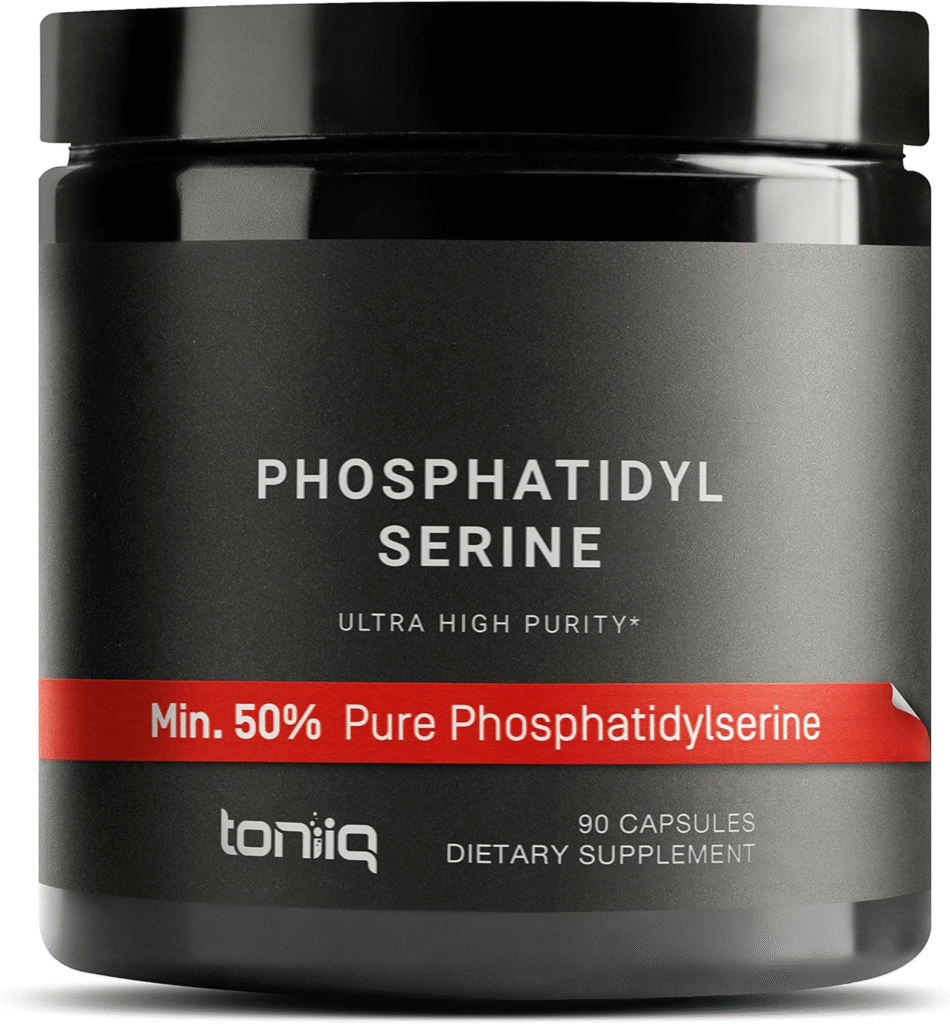
- Vitamin C: This antioxidant vitamin may help reduce cortisol levels, particularly in response to exercise stress.
It also supports overall adrenal function.
Product Recommendation: Organic Vitamin C

- Omega-3 fatty acids: These essential fats can help reduce inflammation and may help modulate the stress response.
They’re found in fatty fish, flaxseeds, and walnuts, or can be taken as a supplement.
Product Recommendation: Sports Research Triple Strength Omega 3 Fish Oil
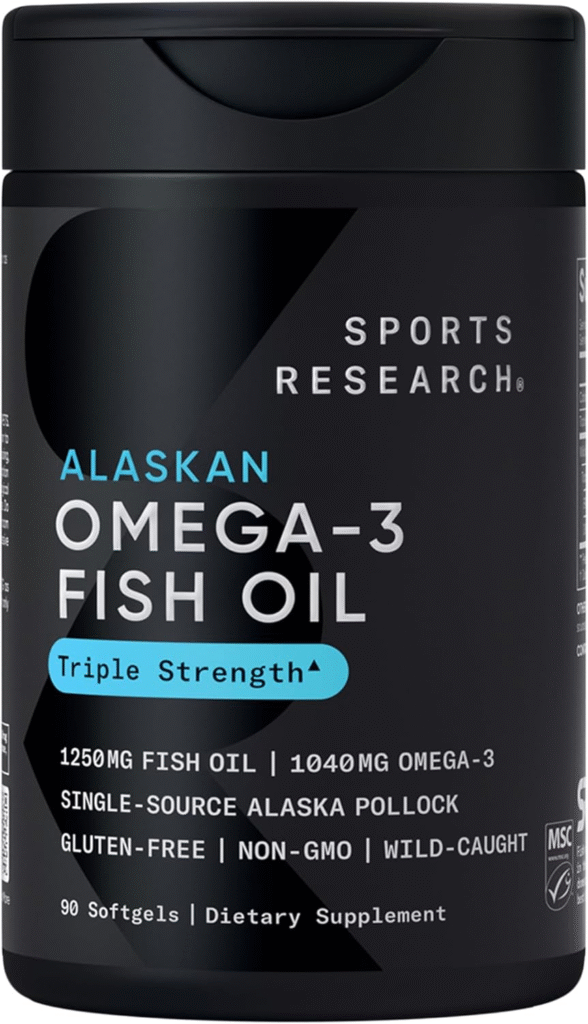
- Adaptogenic herbs: As mentioned earlier, herbs like ashwagandha and rhodiola can help balance the stress response system.
They may be particularly helpful for those dealing with chronic stress.
Product Recommendation: Zazzee USDA Organic Rhodiola
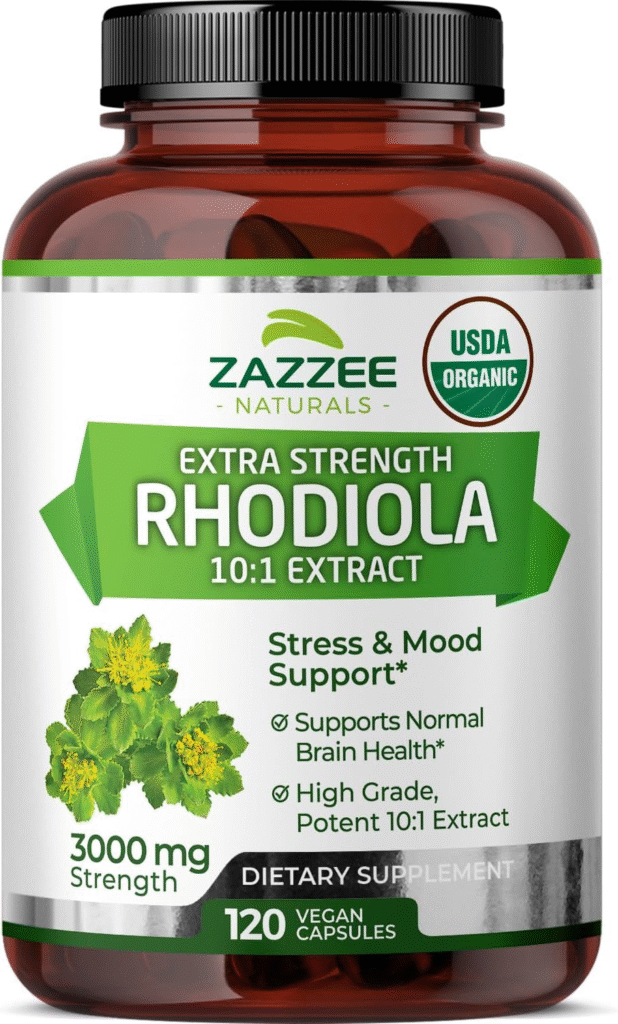
- Magnesium: This mineral plays a crucial role in stress response and cortisol regulation.
Many people are deficient in magnesium, making supplementation potentially useful.
Recommended Product: 5-in-1 Magnesium Complex
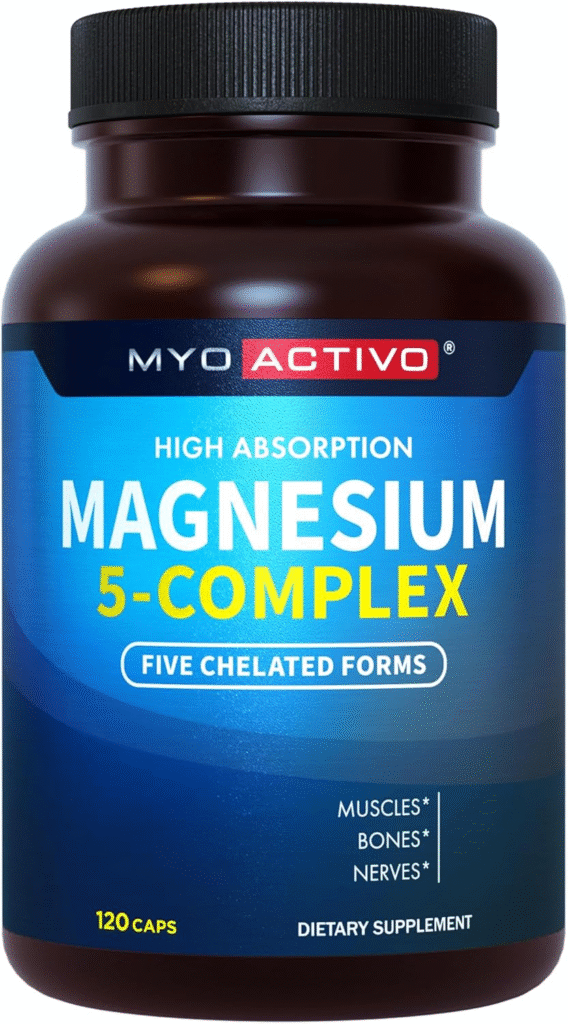
- B-complex vitamins: These vitamins play important roles in energy production and stress response.
They may be particularly helpful for those under chronic stress.
Recommended Product: NATURELO Vitamin B Complex
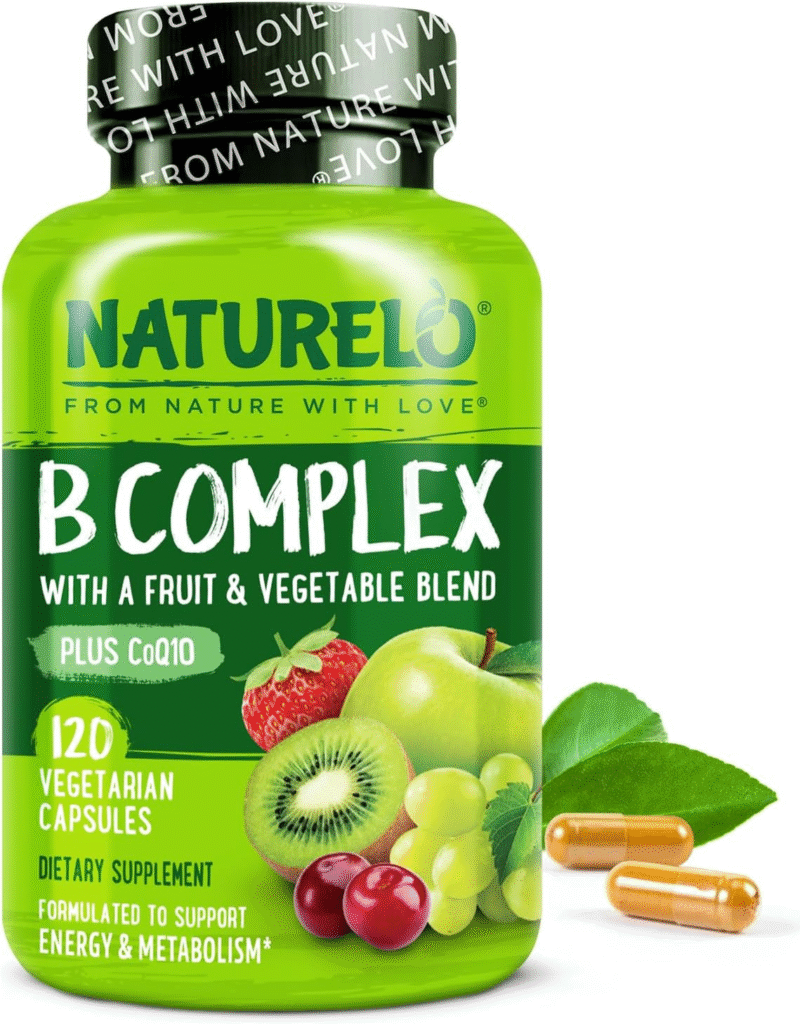
Using Supplements Wisely
While these supplements can be helpful, they work best when combined with a healthy lifestyle. They should be used under the guidance of a healthcare professional, especially if you have any underlying health conditions or are taking medications.
A Balanced Approach to Cortisol Management
Understanding cortisol and its effects on our bodies is crucial for managing stress and maintaining overall health. By debunking these common myths, we can approach cortisol management more effectively.
Key Strategies for Cortisol Balance
- Stress management: Implement techniques like meditation, deep breathing, or yoga to help manage daily stress.
- Regular exercise: Moderate exercise can help regulate cortisol levels and improve overall stress resilience.
- Healthy diet: Focus on a balanced diet rich in whole foods, lean proteins, and healthy fats.
Avoid excessive sugar and processed foods, which can disrupt cortisol balance.
- Sleep hygiene: Prioritize good sleep habits to support your natural cortisol rhythm.
- Social connections: Maintain strong social relationships, as social support can help buffer the effects of stress.
- Time in nature: Spending time outdoors, especially in green spaces, has been shown to reduce stress and cortisol levels.
- Mindfulness practices: Regular mindfulness or meditation can help reduce stress and improve cortisol regulation over time.
- Limit caffeine and alcohol: Both can disrupt cortisol patterns, especially when consumed in excess or at the wrong times of day.
- Targeted supplementation: Use supplements thoughtfully and under professional guidance to support overall stress management and cortisol balance.
- Regular health check-ups: Work with healthcare professionals to monitor your overall health and address any underlying issues that may be affecting your stress levels and cortisol balance.
People Also Asked
What is cortisol?
Cortisol is a steroid hormone produced by the adrenal glands. It plays a crucial role in the body’s stress response, metabolism regulation, and immune function.
How does stress affect cortisol levels?
Acute stress typically causes a temporary increase in cortisol levels, while chronic stress can lead to prolonged elevation or dysregulation of cortisol production.
Can high cortisol levels cause weight gain?
Chronically elevated cortisol levels can contribute to weight gain, particularly around the midsection, but it’s not the sole factor in weight management.
Are there foods that can help lower cortisol?
Some foods that may help support healthy cortisol levels include dark chocolate, bananas, pears, green tea, and foods high in omega-3 fatty acids like salmon.
Does exercise increase or decrease cortisol?
The effect of exercise on cortisol depends on the intensity and duration. Moderate exercise can help regulate cortisol levels, while intense, prolonged exercise may temporarily increase cortisol.
Can low cortisol be as problematic as high cortisol?
Yes, low cortisol levels can also cause health issues, including fatigue, low blood pressure, and difficulty handling stress.
How does cortisol affect sleep?
Cortisol plays a key role in the sleep-wake cycle. High cortisol levels at night can interfere with sleep, while low morning cortisol can make it difficult to wake up and feel alert.
Is ashwagandha effective for managing cortisol levels?
Ashwagandha has shown promise in helping to balance cortisol levels, particularly in people with elevated cortisol because of chronic stress.
Can meditation help regulate cortisol?
Regular meditation practice has been shown to help reduce stress and may help regulate cortisol levels over time.
How does cortisol affect the immune system?
Cortisol has complex effects on the immune system. Short-term increases can boost immunity, while chronic elevation can suppress immune function.
Key Takeaways
- Cortisol is a necessary hormone with important functions in the body
- Not all stress is bad, short-term stress can be beneficial
- Cortisol-lowering supplements aren’t always necessary or helpful
- Adrenal fatigue is a controversial diagnosis not recognized by most endocrinologists
- Cortisol’s relationship with weight is complex and influenced by many factors
- Adaptogenic herbs balance the stress response system, not just lower cortisol
- At-home cortisol testing may not provide an accurate picture of cortisol status
- Both high and low cortisol can affect sleep
- Managing cortisol involves a holistic approach to stress management
Disclaimer
The information contained in this post is for general information purposes only. The information is provided by Debunking Common Myths About Cortisol and Supplements: What You Need to Know and while we endeavor to keep the information up to date and correct, we make no representations or warranties of any kind, express or implied, about the completeness, accuracy, reliability, suitability or availability with respect to the website or the information, products, services, or related graphics contained on the post for any purpose.

